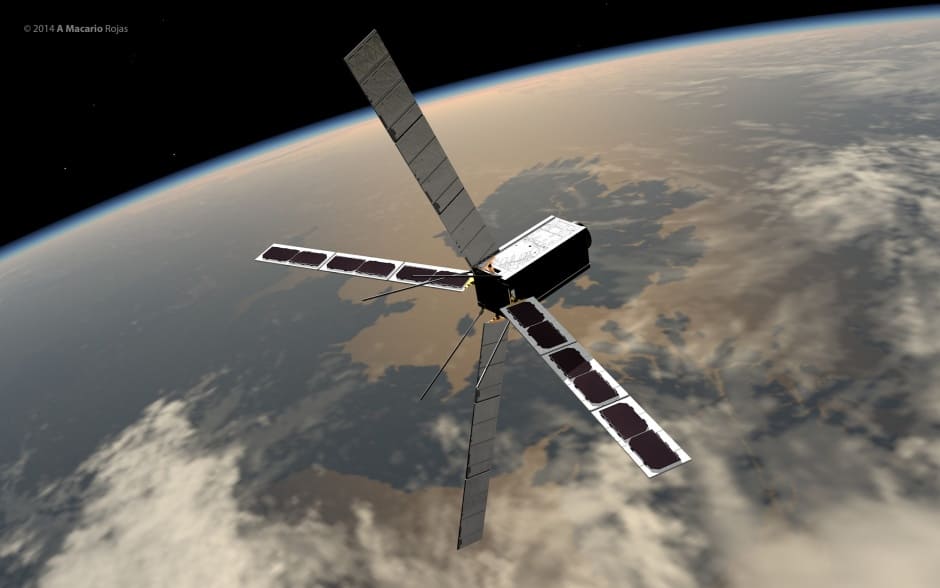UK-led team to develop low flying satellites
Engineers at the University of Manchester are leading a European effort to develop remote-sensing satellites that could fly in far lower orbits than any existing technology.

Such spacecraft could provide better resolution images and would be easier to bring back down to Earth at the end of their lives, thereby reducing the chances of them contributing to the growing problem of space debris.
Widely used for environmental and defence applications, remote sensing satellites currently operate at about 500-800km above the Earth. The Manchester-led team, which is working with a €5.7m grant from the EU’s Horizon 2020 fund, hopes to develop satellites able to operate at just 200-450 km above the Earth’s surface – lower than the international space station.
Dr Peter Roberts, the project's Scientific Coordinator, said: “If we are able to get satellites closer to Earth then we can get the same data using smaller telescopes, or smaller and less powerful radar systems, all of which reduces the satellite mass and cost.”
One of the key areas of the project will be developing a solution to the additional atmospheric drag that will be encountered at these lower altitudes.
Register now to continue reading
Thanks for visiting The Engineer. You’ve now reached your monthly limit of news stories. Register for free to unlock unlimited access to all of our news coverage, as well as premium content including opinion, in-depth features and special reports.
Benefits of registering
-
In-depth insights and coverage of key emerging trends
-
Unrestricted access to special reports throughout the year
-
Daily technology news delivered straight to your inbox










Water Sector Talent Exodus Could Cripple The Sector
Maybe if things are essential for the running of a country and we want to pay a fair price we should be running these utilities on a not for profit...